A group of Belizean journalists concluded a visit to Guatemala City, Guatemala on Wednesday, December 19th. The purpose of their trip to the country was to determine the Guatemalans’ sentiment and gather opinions from officials ahead of the upcoming referendum in Belize on whether to take the Guatemalan territorial claim to the International Court of Justice (ICJ). The three- day media tour started on Sunday, December 16th, and included meetings with former politicians, the general public, Guatemala’s Tribunal Supremo Electoral (TSE) (Elections and Boundaries) and members of private institutions, the business and judiciary sector.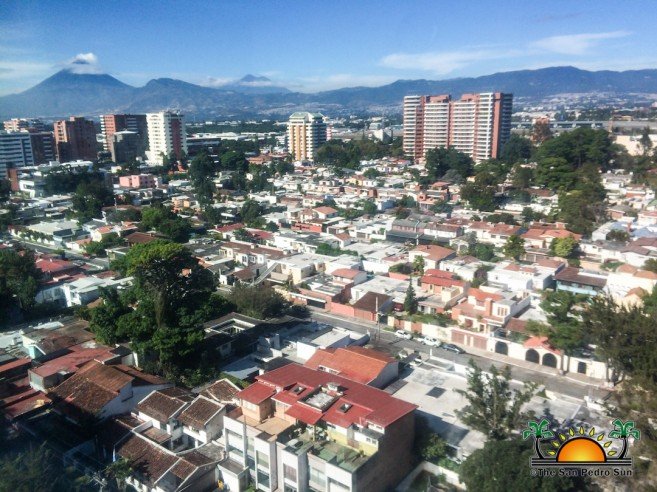
The trip was the second phase of a program sponsored by the Embassy of the United States of America in Belize, titled ‘From the Fear to Facts: Demystifying the ICJ,’ and was organized in Guatemala City by the Embassy of Belize in that country. The first leg of this program took the reporters to The Hague in the Netherlands, where they learn about the procedures of this international judiciary system established by the United Nations that primarily solves contentious cases between countries.
In Guatemala City, the group met with TSE’s Public Relation Officer Gerardo Ortiz. He weighed in on the ICJ Referendum that was held in Guatemala in April of this year, in which only 26% of the electorate came out to vote. The result of the referendum was a ‘Yes’ to the ICJ, and according to Ortiz, it was a historic event. “In the past, we’ve had referendums, and the results have been 13% and 18% turnout,” he said. Ortiz added that the campaign was neutral, it was not influenced by any political party, and their involvement was just to inform the people when to vote and to come out and vote. Ortiz stated that from the 300 million Quetzales (Guatemalan currency) assigned to the campaign, about half of that was used. These monies did not come from donations, but rather from the government, after being approved by the Guatemalan Congress.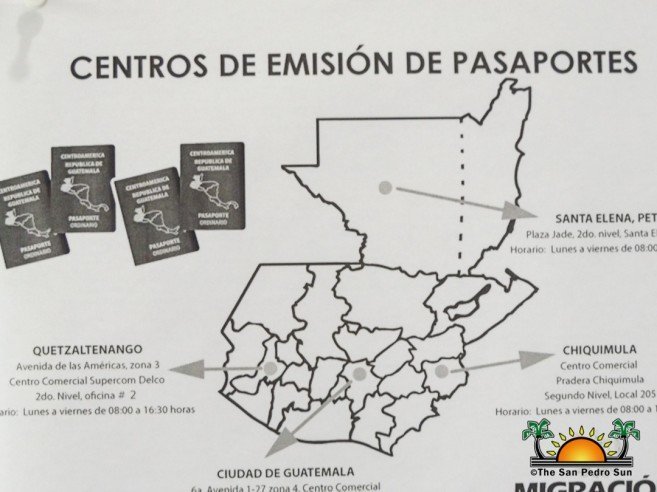
The highlight of the tour was an interactive interview with former Guatemalan Minister of Foreign Affairs Carlos Raul Morales. Morales, who is running for the country’s vice presidency in the next general elections in Guatemala, has a Belizean wife and children. He said that Guatemala recognizes Belize as a country, but not its borders. He touched on the issue with Guatemalan maps including Belize’s territory, and according to him, this practice will continue until the matter is taken before the ICJ. Morales was shocked to hear that Belize’s Minister of Foreign Affairs Honorable Wilfred Elrington told the media that Guatemala would perhaps invade Belize if the result of the referendum next year is against heading to the ICJ. “I hope that is out of context,” he said. “We have a lot of problems in Guatemala, with malnutrition, poverty, infrastructure and I can assure you as a Guatemalan that my country does not have such intentions. Invading Belize is not part of our important things to do. I highly doubt that Guatemala would take such actions.” Morales said that his country wants peace with Belize, and if Belizeans vote ‘NO’ to the ICJ, Guatemala will respect this decision and will continue working with the Belizean Government on ways to solve the territorial dispute. Morales could not tell the Belizean reporters what Guatemala is claiming from Belize. He did not confirm if it is half of the country or if it is the entire territory. “It is a very complicated case, and it is important to study the history. Let’s ask the ICJ what the size of the claim is because Guatemala believes it has a claim,” said Morales.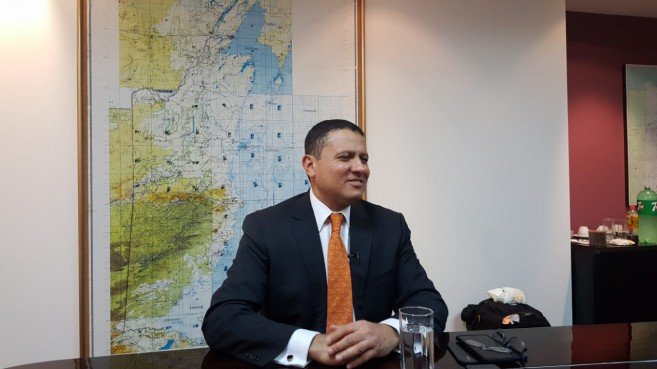
Morales briefly touched on the 1859 Treaty signed between Great Britain and Guatemala that defined Belize’s borders. He explained that because the British breached the agreement, Guatemala decided in 1946 to consider the treaty null and void, and thus the claim started. Guatemala claims that Great Britain was to build a road connecting them to the Caribbean Sea, but it was never built or paid for. This treaty is one of the most important documents in this case. “The first thing the ICJ will define is the validity of this treaty. It is going to be a very interesting case from a legal point of view,” said Morales. The former foreign minister encouraged Belizeans to take the matter to the ICJ, so all the border issues with Belize can end once and for all. According to him, heading to the ICJ will mean that the issues at the Sarstoon, and along the border will come to an end.
This sentiment was shared by non-governmental think -tank called ‘ASIES.’ Executive Secretary Pablo Hurtado said to finalize with the longstanding issue and avoid bigger problems in the future; the ICJ is the only option for both countries. ASIES was one of the main groups during the ICJ campaign in Guatemala promoting the ‘YES’ vote. Hurtado weighed on the consequences if Belizeans vote ‘NO’ to the ICJ. “I think that will put Guatemala in a good position because it will show to the international community that we are willing to solve it in a good way,” he said. Hurtado also said that it would change Guatemala’s image of being a violent country, referring to their 36-year civil war that ended in 1996.
The business and judiciary sector of Guatemala also gave their professional opinions on the matter, encouraging the ‘YES’ vote in Belize. Head of the Agricultural Commercial Industrial Committee known (CACIF), Carlos Amador stated that trade has increased between the countries, but that it could be better if the dispute is settled. Amador said that Guatemalans are not claiming territories, all they want is certainty of where the borders should be located. “Our point of view is that if you have a dispute settled, both parts should benefit,” he said. Amador is certain that the ICJ is a win-win option for Belize and Guatemala.
The idea that the claim could someday fade away was disregarded by former congressman and attorney-at-law Cesar August del Aguila. According to him, the claim is in the Guatemalan Constitution, and thus, the issue will always come up. Del Aguila refrained from further speaking on the political aspect of the topic and could not say what Guatemalans want from Belize. “Belize and Guatemala signed an agreement to settle this dispute at the ICJ. Guatemala has already fulfilled part of that agreement by saying ‘Yes’ in our referendum, now the ball is on Belize’s side,” he said. He stated that if Belizeans are hesitant to take the dispute to the court, then they need to ask their government why they signed the Special Agreement in 2008. In that agreement, Belize committed to taking the territorial dispute to the ICJ, obliging the agreement to be fulfilled.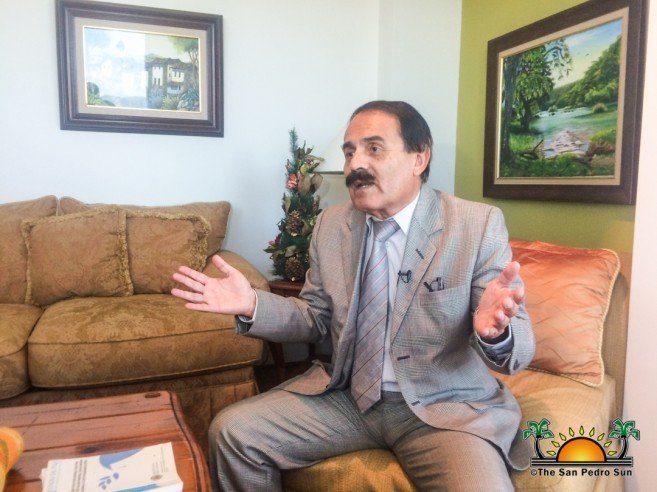
The Belizean media was also able to speak with citizens, and many were not fully aware of the dispute. Many showed little interest in the topic and said that Belize is a country of its own. 25-year-old University student and researcher Maria Galan indicated that the younger generation does not give much attention to the matter. “I think that we have this feeling that we do not need to solve anything with Belize. I think it is just a millennial thing and we think it is a problem that does not exist,” said Galan. She believes that most people around her age were against the referendum held in Guatemala. The Guatemalan youth believes that it was too much money assigned to that event, ignoring the major problems the country is experiencing. However, others believe that the vote of the 26% of electors must be respected and acknowledged, even though they agree that the referendum was a waste of public funds.
The media tour ended with a visit to the Guatemalan Consulate in the border town of Benque Viejo del Carmen in Belize’s western Cayo District. Head of the Mission, Edgar Chan did not speak on the dispute, but rather about the relationships within the border communities. According to Chan, the relationship between Benque and the Guatemalan town of Melchor is going well, and many Guatemalans travel to Belize every day to study or work. Chan indicated that the illegal incursions into Belize by Guatemalan peasants are being addressed by creating sustainable agricultural programs so the residents of the 150 communities along Belize’s western border can have better opportunities.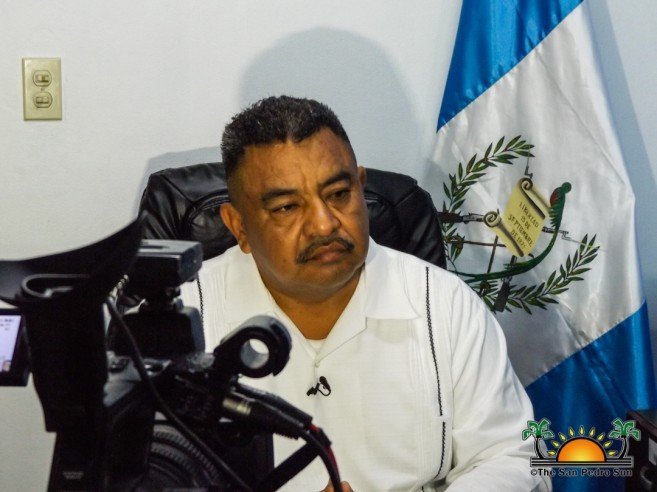
Chan said that when it comes to the dispute, all he can share is that the most interested Guatemalans in the dispute are the residents living along the border. “We only take care of consular issues, the Embassy of Guatemala in Belize City deals with political matters. But many of the communities along the Chiquibul, are anxious to know when the issue will be settled. The border is not demarcated, so you never know when you cross into Belize, there is no way to tell,” Chan said. According to him, the number of Guatemalans living in Belize presently represents 5% of the Belizean population, and when a Guatemalan renounces his/her citizenship, the Guatemalan government allows it.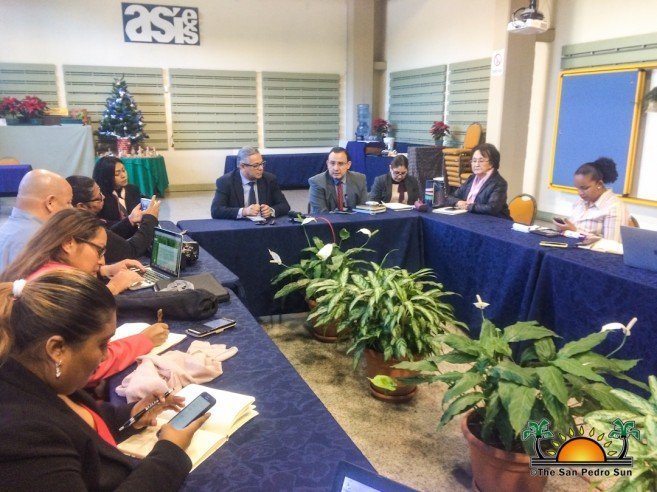
The pulse from Guatemalans on the territorial dispute was mixed, with many encouraging the issue to be settled as soon as possible, while others do not have much interest in the centennial dispute.
Belizeans will be called to the polls on April 10, 2019, to vote ‘YES’ or ‘NO’ on whether the International Court of Justice should settle the Guatemalan territorial claim on Belize. Until then, an intense educational campaign continues to take place across the country in an attempt to inform Belizeans on the territorial dispute, and why the ICJ could be the best option to end the territorial dispute between Belize and Guatemala.
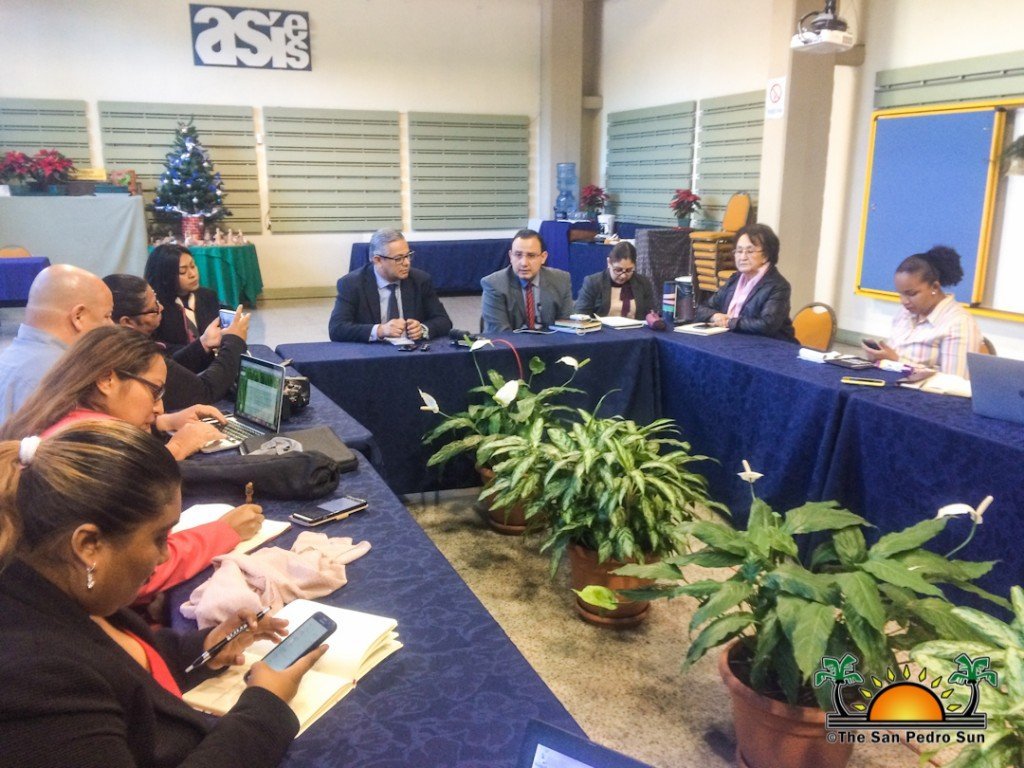
Share
Read more

